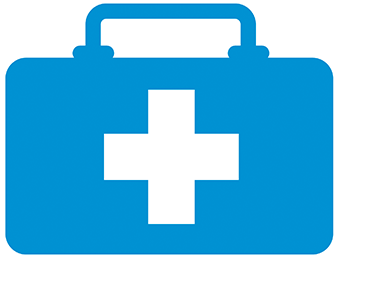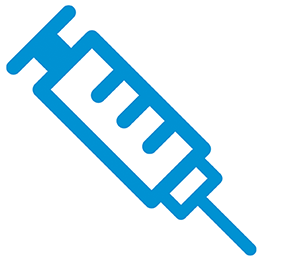The SARS-CoV-2 coronavirus causes infections of the respiratory tract, but can also affect other organs of the body. COVID-19 is a systemic disease, meaning it affects the whole body. The symptoms and severity of the COVID-19 disease vary greatly. Some people experience no symptoms whatsoever. However, people can also experience severe symptoms or even die from the disease. Symptoms alone do not indicate infection by SARS-CoV-2.
Common symptoms include coughing, fever, head cold, and sore throat, as well as impaired sense of taste or smell. People may also experience other symptoms, such as shortness of breath, head and joint pain and general lethargy. Some sufferers report gastrointestinal symptoms, including nausea, loss of appetite, vomiting, abdominal pain and diarrhoea. Other symptoms have also been reported.
Severe progression of the disease can lead to complications, such as pneumonia, inflammatory diseases of the nervous system, brain or cerebral membrane, cardiovascular, liver or kidney disease. Impaired circulation, blood clots (embolisms) and inflammation of the cardiac muscle can also occur. The most severe inflammatory reactions (hyperinflammatory syndrome) can result in organ failure.
Symptoms of the disease can still be present or reoccur weeks or months after being infected by COVID-19. Long-term health consequences that continue for more than four weeks after being infected with SARS-CoV-2 are referred to as long COVID. The most common symptoms of 'long COVID' include tiredness, exhaustion and impaired capacity (fatigue), shortness of breath, concentration and memory problems, sleep disorders, muscle weakness and muscle pain, as well as mental problems including symptomatic depression.
Children infected with SARS-CoV-2 usually experience mild symptoms or no symptoms at all, although they can also suffer from more severe symptoms and long-term health consequences. Paediatric Inflammatory Multisystemic Syndrome (PIMS) is one of the rare complications found in children and adolescents. This is an inflammatory condition characterised by fever, gastrointestinal symptoms and cardiac problems. It often requires intensive medical treatment although its treatment is now very good.





